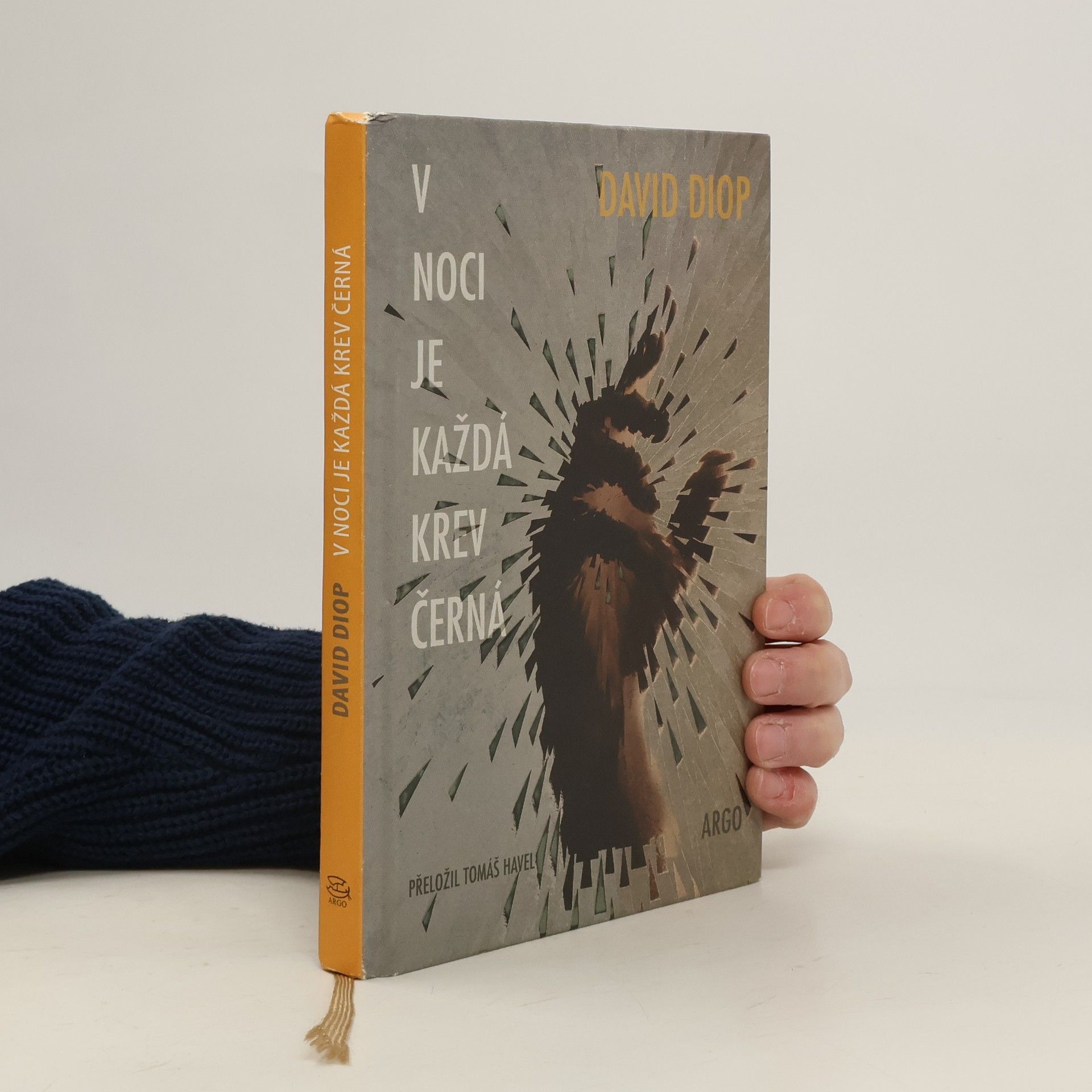Sul fronte occidentale, nelle trincee francesi, i fucilieri senegalesi, definiti «cioccolatini dell'Africa nera» dal capitano Armand, si distinguono tra i soldati bianchi. Prima di ogni assalto, il capitano esalta il loro coraggio, instillando in loro un senso di orgoglio per la Francia. I senegalesi, divertiti, si preparano a combattere, armati di fucile e machete. Alfa Ndiaye e Madenba Diop, amici cresciuti insieme in Africa, rispondono al richiamo del capitano con fervore, ma la guerra riserva loro un destino tragico. Madenba viene gravemente ferito e, in preda al dolore, chiede ad Alfa di porre fine alla sua vita. Dopo tre rifiuti, Madenba muore, lasciando Alfa a confrontarsi con l'orrore della guerra. La sua anima, un tempo legata a valori ancestrali, si trasforma: ad ogni fischio del capitano, Alfa esce dalla trincea per uccidere i nemici, raccogliendo trofei di guerra. In questo contesto di devastazione, il romanzo esplora la perdita dell'anima e della tradizione, non solo in Europa, ma anche in una parte significativa dell'Africa, mostrando come la Grande Guerra abbia segnato un naufragio totale della civiltà. L'opera ha ricevuto il prestigioso premio Goncourt des Lycéens e un'accoglienza critica entusiasta.
David Diop Libri
David Diop è cresciuto in Senegal e attualmente insegna all'Università di Pau. La sua opera letteraria esplora le profondità dell'esistenza umana con un occhio attento ai dettagli e una voce poetica. Crea narrazioni che risuonano con verità emotiva ed esplorano temi universali.






Hammer Blows
- 128pagine
- 5 ore di lettura
In this English translation of Hammer Blows, the famous collection of poems by renowned writer David Diop is presented in all its brilliance and wit.First published in 1956, this powerful collection was written during the height of the Negritude movement in France. Posthumously translated into English as Hammer Blows, Diop's voice offers a passionate critique of slavery in the American South and colonialism in Africa.Edited and translated from the French by Simon Mpondo and Frank Jones.'A vigorous use of diction that cuts like a whip, an impassioned and total commitment to the oppressed.' John F. Povey
Beyond the Door of No Return
- 245pagine
- 9 ore di lettura
The hotly anticipated new novel by David Diop, winner of the International Booker Prize. Paris, 1806. The renowned botanist Michel Adanson lies on his deathbed, the masterwork to which he dedicated his life still incomplete. As he expires, the last word to escape his lips is a woman’s name: Maram. The key to this mysterious woman’s identity is Adanson’s unpublished memoir of the years he spent in Senegal, concealed in a secret compartment in a chest of drawers. Therein lies a story as fantastical as it is tragic: Maram, it turns out, is none other than the fabled revenant. A young woman of noble birth from the kingdom of Waalo, Maram was sold into slavery but managed to escape from the Island of Gorée—a major embarkation point of the transatlantic slave trade—to a small village hidden in the forest. While on a research expedition in West Africa as a young man, Adanson hears the story of the revenant and becomes obsessed with finding her. Accompanied by his guide, he ventures deep into the Senegalese bush on a journey that reveals not only the savagery of the French colonial occupation but also the unlikely transports of the human heart. Written with sensitivity and narrative flair, David Diop’s Beyond the Door of No Return is a love story like few others. Drawing on the richness and lyricism of Senegal’s oral traditions, Diop has constructed a historical epic of the highest order.
V noci je každá krev černá
- 160pagine
- 6 ore di lettura
Alfa Ndiaye a Mademba Diop jsou jedni z mnoha senegalských střelců bojujících pod francouzskou vlajkou v zákopech první světové války. Jsou nejlepší přátelé, znají se od dětství, vyrůstali spolu. Jsou to „víc než bratři“. Při jednom útoku Mademba zemře v krutých bolestech v Alfově náruči. Teprve v tu chvíli se „blonďáci s modrýma očima“ stanou skutečnými nepřáteli. V Alfovi se něco zlomí a s mačetou v ruce se vydá do své osobní války, až se nakonec stane postrachem vlastních spolubojovníků, kteří v něm začnou vidět nebezpečného čaroděje. Na rozdíl od nich ale čtenář může alespoň sledovat valící se proud Alfových myšlenek, proud bolesti nad ztrátou a proud vzpomínek na život před válkou, na dětství a dospívání v senegalské vesnici, na poslední dny před odchodem do války. Proud výčitek svědomí, proud otázek a proud odpovědí, které však Alfu vedou strmou cestou do propasti. Kniha získala dvě významná ocenění: Prix Goncourt des Lycéens v roce 2018 a International Booker Prize v roce 2021. Kniha byla přeložena do 30 jazyků a vyšla ve 33 zemích.
Eine Hymne auf die Liebe und auf die Freiheit - vom Gewinner des International Booker Prize. David Diop erzählt die Lebensgeschichte des Botanikers Michel Adanson (1727-1806), der als erster weißer Naturforscher den Senegal bereist. Sein Ziel ist eine umfassende Enzyklopädie der afrikanischen Fauna. Als Adanson von dem tragischen Verschwinden einer jungen Frau erfährt, bekommt seine Expedition ein neues Ziel. Und er findet sie: Die mysteriöse Maram lebt als Heilerin in einem Dschungeldorf, um den Sklaventreibern zu entkommen. Adanson verliebt sich in sie und begreift immer mehr, dass sein weißes westliches Weltbild überholt ist. Trotzdem kann er Maram nicht vor ihrem Schicksal retten ... Erst nach Adansons Tod findet seine Tochter die Reisehefte und begreift, wer ihr Vater wirklich war. David Diop schreibt so eindrücklich über die Leidenschaft des Entdeckens wie über die Abgründe des Kolonialismus und formt daraus eine Ode an die Liebe. »Diop verbindet die Leidenschaft für die Pflanzen und für die Liebe mit den Wunden der Geschichte und führt uns an den Rand der menschlichen Vernunft.« LIRE